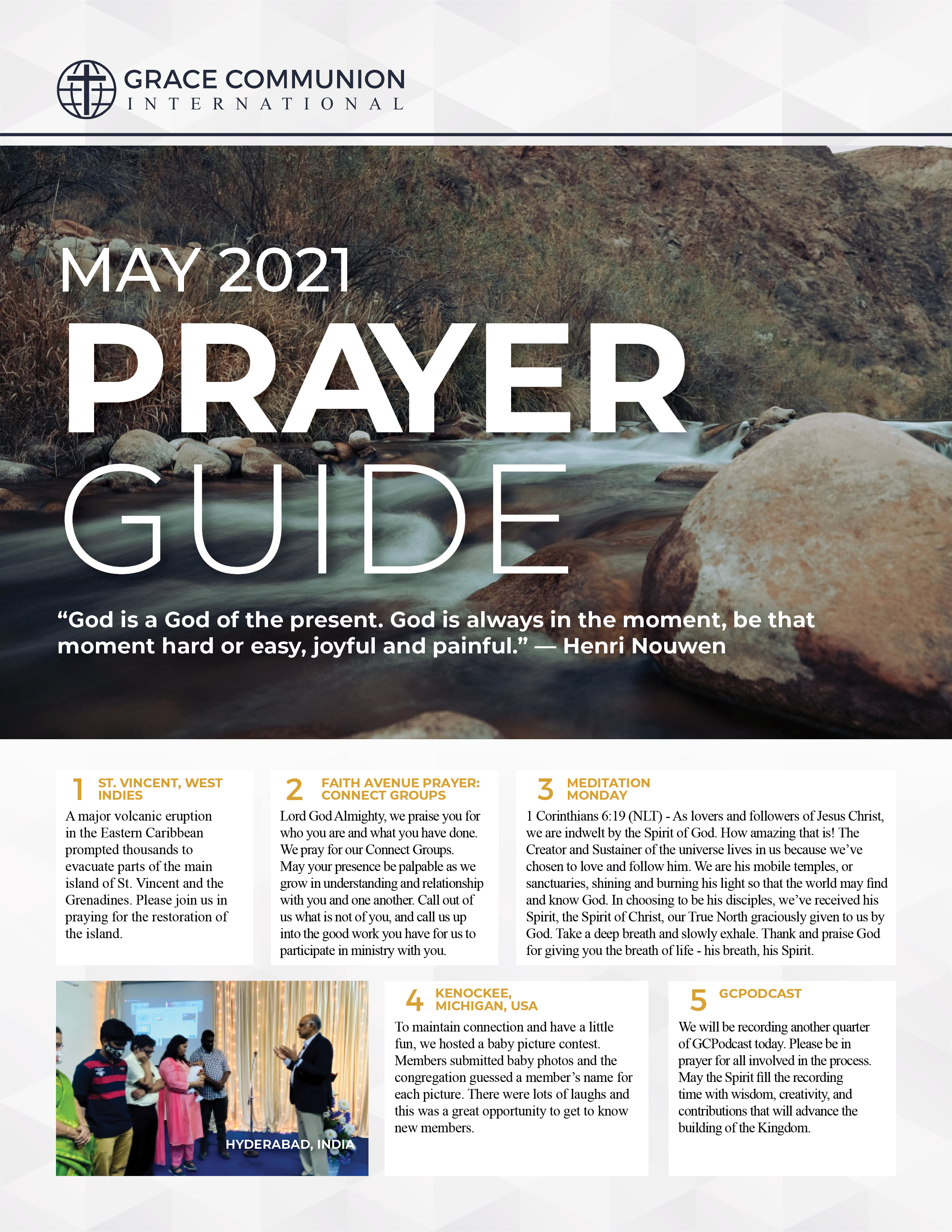From time to time, I invite a guest writer to share meaningful experiences and information with our church audience. This issue is a contribution from my good friend John McLean. In February 2020 John handed over his mantle of leadership of Superintendent of Australasia to Daphne Sidney. However, John’s stepping down has not meant stepping away. John remains active on the Australian Church Board and he faithfully oversees Ambassador College of Christian Ministry, and I am deeply grateful for his leadership of the many cohort learning groups around the world that he facilitates.
– Dr. Greg Williams, GCI President
Let me introduce you to Randall. Randall officially retired from his role as pastor of a large capital city church. This gave an opportunity for a younger minister to pastor the congregation. Randall continues to serve and contribute in many ways – in worship, teaching, fellowshipping, mentoring and continuing with his connections and service into the local community. He does this without the same office, or title (or pressure), and remains a highly valued elder within the church community.
Many of our pastors are sharing this same journey.
Yet, “Many think that approaching Retirement is like approaching death”, writes a well-known management expert. Retirement is often one of those words we often don’t like to hear, let alone talk about. For some, the word conjures up loss of identity, meaning, purpose, respect—something to be devoutly resisted!
We never retire from being a Christian. Yet it is normal and healthy that we do retire in a timely fashion from roles, offices, ministries and functions within the church. And, yes, sometimes this can be challenging, even daunting. There can be a tendency to want to hold on, even a feeling that it is not responsible to “let go” or step down. And sometimes there is the accompanying notion that Retirement means the end – the end of being useful, engaged, productive. The erroneous notion that stepping down means stepping away.
This approach to retirement is not a recipe for healthy church cultures and healthy, vital congregations. Healthy church cultures of faith, hope and love understand, affirm and support the reality that there are seasons in life, as Ecclesiastes so eloquently tells us. And retirement, rotation, renewal is a healthy and desirable part of church life.
Leader as Steward: Making Room
The church belongs to Jesus. The congregations are not ours. Our identity is in Jesus, not in our roles. While we take any role, ministry or responsibility seriously, we hold such responsibilities as stewards in trust for others. That is, servant leaders do not think in terms of personal position or power, but always hold their leadership on behalf of, and for the serving of, others. We are given gifts from God, including sometimes ministry responsibilities and functions. These are from God, not of ourselves.
What we do is important. Who we are, in Christ, is foundational. The reality is that it is Jesus’ church, and he takes care of it. We participate in the ministry of Jesus through our union with him in the Spirit. We don’t run our own ministry. It’s not about us, but about Jesus.
The church emerges from the deep Trinitarian relationship of Father, Son and Spirit – a communion of mutual love and caring. Indeed, it’s a beautiful, rich fellowship of mutual indwelling, of continuous self-giving and self-emptying one into the other. This relationship is often described by a theological term which translates as “making room” for one another.
Servant leaders don’t just hold on to their positions. They actively seek to make room for others. They intentionally seek to engage, equip, empower and encourage others. And there’s not much point empowering others if we also don’t “make room” for them.
That means prayerfully, professionally, and responsibly developing succession plans and preparing for stepping down and stepping aside for others. This means training and giving others experience and opportunities for development in advance – opportunities for leading. This is really about translating the theology into good, healthy practice!
Have you heard something like this: you will know when it is time to retire, because you will wake up one morning and not want to do what you are doing any more. While understandable, that is not a recipe for a healthy congregational life! It’s a very individual-centered approach, rather than congregationally-centered approach. It’s not the approach of servant, stewarding leadership.
Of course, there are many factors to consider. Context is always important. Health, age, family, and financial circumstances may impact how we do all of this. And we all understand the challenge of finding the right person at the right times. So, this whole process is a vital part of our collective prayerful walk of faith, involving the pastor, the leadership teams and the whole congregation.
Healthy congregations need to value, appreciate and affirm those who currently serve, and give due honor and respect to those who have gone before and served over many years, and who may be stepping into different roles and functions. Because many individuals, and congregations, may not like change, it’s often easier to go with the status quo than to risk what might appear to be loss or discomfort. Yet we are engaged in this journey of faith, looking for the lead of the Holy Spirit. And looking to Jesus to shape his church as he wills. We are not just talking about change for change’s sake, but prayerful involvement and inclusion of people God has called into ministry. Healthy churches really want to see members grow in faith and service.
Stepping Down, not Stepping Away
Stepping down doesn’t mean stepping away. What healthy congregation wouldn’t want to utilize the gifts and wisdom of someone who has accumulated much ministry experience?
Stepping down means making room for others and creates new opportunities and challenges for those who take the initiative to step down. Opportunity to creatively explore things you have not had time or energy to pursue. Being able to focus on a particular area of ministry that resonates with you and your personal gifting. Acting as a mentor rather than doing all the things you once did. (As long as you recognize that others will not do what you did the way you did it!) It means “giving room” – including the room for people to make mistakes. (And who hasn’t made mistakes?) It means helping to equip and develop and grow other leaders enveloped in an atmosphere of encouragement. It means opening up new avenues of service and contribution, in faith.
This season of Easter, right up to Pentecost, we celebrate the new era of the new covenant – the new life we share in Christ through the Spirit. We celebrate the church as the creation of Jesus himself. We often reflect on good analogies of renewal, refreshing, revitalizing, and regeneration.
We never retire from being a Christian. And the “R” word doesn’t have to mean Retirement from Christian ministry, from making significant contributions to our congregations, our denomination and the world. Stepping down from one role, moving into other areas of service, can mean Renewal and Regeneration – for the congregation, and for the individuals involved.
May God bless our congregational and individual renewal.

By John McLean
Brisbane, Australia









 By Eugene Guzon
By Eugene Guzon

 Grace Communion Cleveland (Cleveland, Ohio) hosted their 17th Annual LiLY Women’s Conference on April 24, 2021, via Zoom. Zoom has given us the opportunity to connect across the country and internationally. One hundred women registered to take part in the one day conference that highlighted the theme scripture “I Am Doing A New Thing” (Isaiah 43:18-19).
Grace Communion Cleveland (Cleveland, Ohio) hosted their 17th Annual LiLY Women’s Conference on April 24, 2021, via Zoom. Zoom has given us the opportunity to connect across the country and internationally. One hundred women registered to take part in the one day conference that highlighted the theme scripture “I Am Doing A New Thing” (Isaiah 43:18-19).